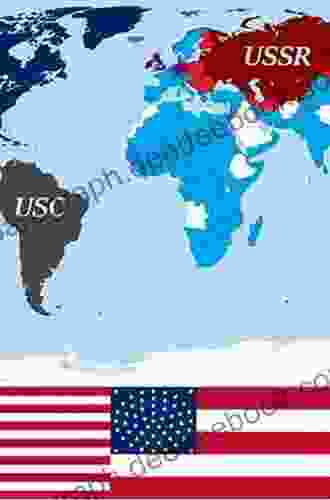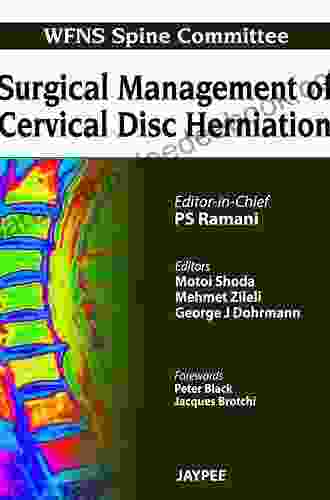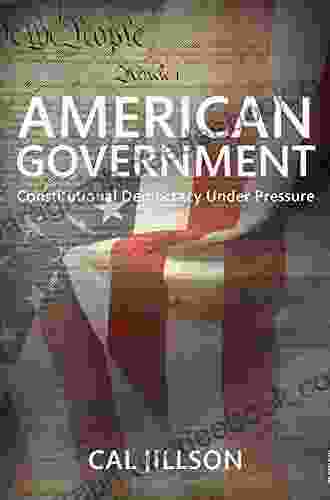America and the World in the Post-Cold War Era: A Comprehensive Analysis

4.3 out of 5
| Language | : | English |
| File size | : | 973 KB |
| Text-to-Speech | : | Enabled |
| Enhanced typesetting | : | Enabled |
| Word Wise | : | Enabled |
| Print length | : | 485 pages |
| Lending | : | Enabled |
| Screen Reader | : | Supported |
The end of the Cold War in 1991 marked a significant turning point in global affairs. The bipolar system that had dominated international relations for nearly half a century collapsed, leaving the United States as the sole superpower.
The post-Cold War era has been characterized by a number of major political, economic, and social transformations. These include the rise of globalization, the spread of democracy, the emergence of new powers such as China and India, and the challenges posed by terrorism.
The United States has played a central role in shaping the post-Cold War world. As the world's only superpower, the United States has been the guarantor of global security and stability.
However, the United States has also been criticized for its unilateralism and its tendency to intervene in the affairs of other countries.
The post-Cold War era has been a time of both progress and challenge. The world has become more interconnected and prosperous, but it has also become more complex and dangerous.
The United States faces a number of challenges in the post-Cold War era. These include the rise of China, the threat of terrorism, and the need to adapt to a rapidly changing global economy.
The United States must work together with its allies and partners to address these challenges and build a more secure and prosperous future for all.
The Rise of Globalization
Globalization is the process of increasing interconnectedness and interdependence between countries and peoples. It has been driven by a number of factors, including advances in transportation and communication technology, the spread of free trade, and the decline of barriers to investment.
Globalization has had a profound impact on the world. It has led to increased trade and investment, which has helped to lift millions of people out of poverty.
However, globalization has also led to increased inequality, as well as the loss of jobs in some sectors of the economy.
The United States has been both a beneficiary and a driver of globalization. American companies have been able to expand their markets and operations overseas, and American consumers have benefited from lower prices on goods and services.
However, the United States has also faced challenges from globalization, including the loss of manufacturing jobs and the rise of China as a global economic power.
The Spread of Democracy
The end of the Cold War led to a wave of democratization around the world. In the 1990s, many countries in Eastern Europe, Latin America, and Africa transitioned from authoritarian rule to democracy.
The spread of democracy has been a positive development, as it has given more people the opportunity to participate in government and hold their leaders accountable.
However, democracy is not always easy to establish or maintain. In some countries, democratic institutions have been weak or unstable, and there have been backsliding into authoritarianism.
The United States has been a strong supporter of democracy promotion around the world. American aid and assistance have helped to support democratic transitions in many countries.
The Emergence of New Powers
The end of the Cold War also led to the emergence of new powers, such as China and India. These countries have become major players in the global economy and have begun to play a more active role in international affairs.
The rise of new powers is a positive development, as it diversifies the global balance of power and creates new opportunities for cooperation.
However, the rise of new powers also poses challenges for the United States. The United States must adjust to a more multipolar world and find ways to cooperate with new powers while protecting its own interests.
The Challenges of Terrorism
The terrorist attacks of September 11, 2001, marked a turning point in the post-Cold War era. The attacks showed that the United States was not immune to terrorism and that the threat from terrorism was global.
The United States has responded to the threat of terrorism by launching the War on Terror. The War on Terror has included military action in Afghanistan and Iraq, as well as increased security measures at home and abroad.
The War on Terror has been controversial, and there is debate about its effectiveness. However, it is clear that terrorism remains a serious threat to the United States and its allies.
The United States must continue to work with its allies and partners to combat terrorism and to protect its citizens from harm.
The Iraq War
The Iraq War was a major turning point in the post-Cold War era. The war began in 2003 with the invasion of Iraq by a US-led coalition. The stated goal of the war was to remove Saddam Hussein from power and to prevent Iraq from developing weapons of mass destruction.
The Iraq War was a controversial conflict, and there is still debate about its legality and its consequences. However, it is clear that the war had a profound impact on the post-Cold War world.
The Iraq War led to the deaths of thousands of American soldiers and Iraqi civilians. It also destabilized the region and created a power vacuum that was filled by terrorist groups such as ISIS.
The United States is still dealing with the consequences of the Iraq War. The war has damaged America's reputation and credibility, and it has strained relations with its allies.
The Afghanistan War
The Afghanistan War began in 2001, following the terrorist attacks of September 11th. The war began with the US-led invasion of Afghanistan and the overthrow of the Taliban government.
The stated goal of the war was to disrupt al-Qaeda's operations in Afghanistan and to prevent the Taliban from regaining control of the country.
The Afghanistan War has been a long and costly conflict. The war has led to the deaths of thousands of American soldiers and Afghan civilians. It has also destabilized the region and created a humanitarian crisis.
The United States is still fighting the Afghanistan War, and there is no clear end in sight. The war has strained America's resources and its patience, and it has raised questions about the limits of American power.
The War on Terror
The War on Terror is a global campaign against terrorism that was launched by the United States after the terrorist attacks of September 11, 2001.
The War on Terror has involved military action in Afghanistan, Iraq, and other countries. It has also involved increased security measures at home and abroad.
The War on Terror has been controversial, and there is debate about its effectiveness. However, it is clear that terrorism remains a serious threat to the United States and its allies.
The United States must continue to work with its allies and partners to combat terrorism and to protect its citizens from harm.
The Future of America and the World
The post-Cold War era has been a time of both progress and challenge. The world has become more interconnected and prosperous, but it has also become more complex and dangerous.
The United States faces a number of challenges in the post-Cold War era, including the rise of China, the threat of terrorism, and the need to adapt to a rapidly changing global economy.
However, the United States also has a number of strengths, including its strong economy, its democratic system, and its alliances with other countries.
If the United States can work together with its allies and partners, it can overcome the challenges of the post-Cold War era and build a more secure and prosperous future for all.
4.3 out of 5
| Language | : | English |
| File size | : | 973 KB |
| Text-to-Speech | : | Enabled |
| Enhanced typesetting | : | Enabled |
| Word Wise | : | Enabled |
| Print length | : | 485 pages |
| Lending | : | Enabled |
| Screen Reader | : | Supported |
Do you want to contribute by writing guest posts on this blog?
Please contact us and send us a resume of previous articles that you have written.
 Book
Book Page
Page Reader
Reader Library
Library Paperback
Paperback Paragraph
Paragraph Bookmark
Bookmark Shelf
Shelf Preface
Preface Annotation
Annotation Footnote
Footnote Scroll
Scroll Bestseller
Bestseller Classics
Classics Library card
Library card Biography
Biography Autobiography
Autobiography Reference
Reference Encyclopedia
Encyclopedia Dictionary
Dictionary Narrator
Narrator Character
Character Librarian
Librarian Catalog
Catalog Card Catalog
Card Catalog Borrowing
Borrowing Periodicals
Periodicals Research
Research Scholarly
Scholarly Lending
Lending Reserve
Reserve Journals
Journals Special Collections
Special Collections Interlibrary
Interlibrary Literacy
Literacy Dissertation
Dissertation Awards
Awards Reading List
Reading List Book Club
Book Club Theory
Theory Lydia Usen
Lydia Usen Jeffrey Tanenhaus
Jeffrey Tanenhaus Michael Slack
Michael Slack Sophie Leigh Robbins
Sophie Leigh Robbins Michael D Roberts
Michael D Roberts Graeme Simsion
Graeme Simsion Marianne Dubuc
Marianne Dubuc Nelson C Nye
Nelson C Nye Jill Mcdonald
Jill Mcdonald Stephen J King
Stephen J King Kevin Ayers
Kevin Ayers Dorothy Eden
Dorothy Eden Ares Papadopoulos
Ares Papadopoulos Dante Mena
Dante Mena Carrie Herzner
Carrie Herzner Mrgoodgoeshard
Mrgoodgoeshard Douglas M Parker
Douglas M Parker Esther T Jones
Esther T Jones Tyler Wagner
Tyler Wagner Safia Minney
Safia Minney
Light bulbAdvertise smarter! Our strategic ad space ensures maximum exposure. Reserve your spot today!

 Anthony WellsUnveiling the Eerie World of The Hollow Ones: A Blackwood Tapes Investigation
Anthony WellsUnveiling the Eerie World of The Hollow Ones: A Blackwood Tapes Investigation Forrest ReedFollow ·6.7k
Forrest ReedFollow ·6.7k Morris CarterFollow ·3.9k
Morris CarterFollow ·3.9k Milton BellFollow ·16.9k
Milton BellFollow ·16.9k Adrien BlairFollow ·5.5k
Adrien BlairFollow ·5.5k Chance FosterFollow ·19k
Chance FosterFollow ·19k Deacon BellFollow ·16.8k
Deacon BellFollow ·16.8k Jeremy MitchellFollow ·7.4k
Jeremy MitchellFollow ·7.4k Phil FosterFollow ·11.7k
Phil FosterFollow ·11.7k

 Ricky Bell
Ricky BellThe Marriage: An Absolutely Jaw-Dropping Psychological...
In the realm of...

 Ray Blair
Ray BlairDiscover the Enchanting Charm of Budapest and Its...
Nestled in the heart of...

 Tyrone Powell
Tyrone PowellHuddle: How Women Unlock Their Collective Power
Huddle is a global movement that empowers...
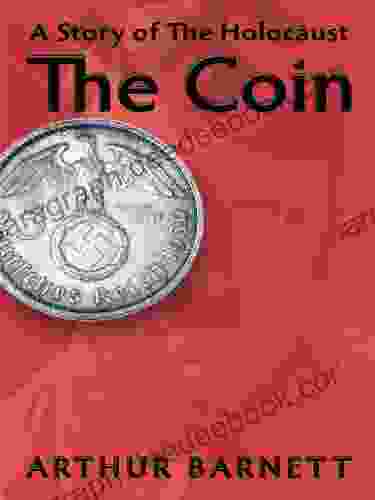
 Grayson Bell
Grayson BellThe Coin Story of the Holocaust: A Symbol of Hope and...
In the depths of the...
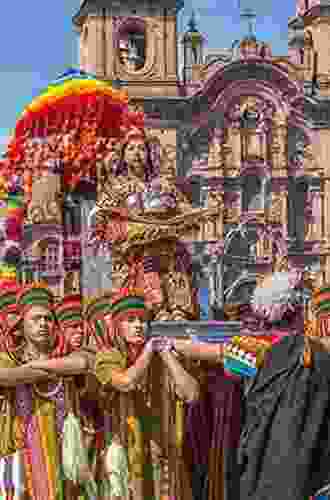
 Virginia Woolf
Virginia WoolfFolklore Performance and Identity in Cuzco, Peru: A...
Nestled amidst...

 Dylan Mitchell
Dylan MitchellThe Enduring Love Story of Héloïse and Abélard: A Tale of...
An Intellectual Passion In the heart of...
4.3 out of 5
| Language | : | English |
| File size | : | 973 KB |
| Text-to-Speech | : | Enabled |
| Enhanced typesetting | : | Enabled |
| Word Wise | : | Enabled |
| Print length | : | 485 pages |
| Lending | : | Enabled |
| Screen Reader | : | Supported |


